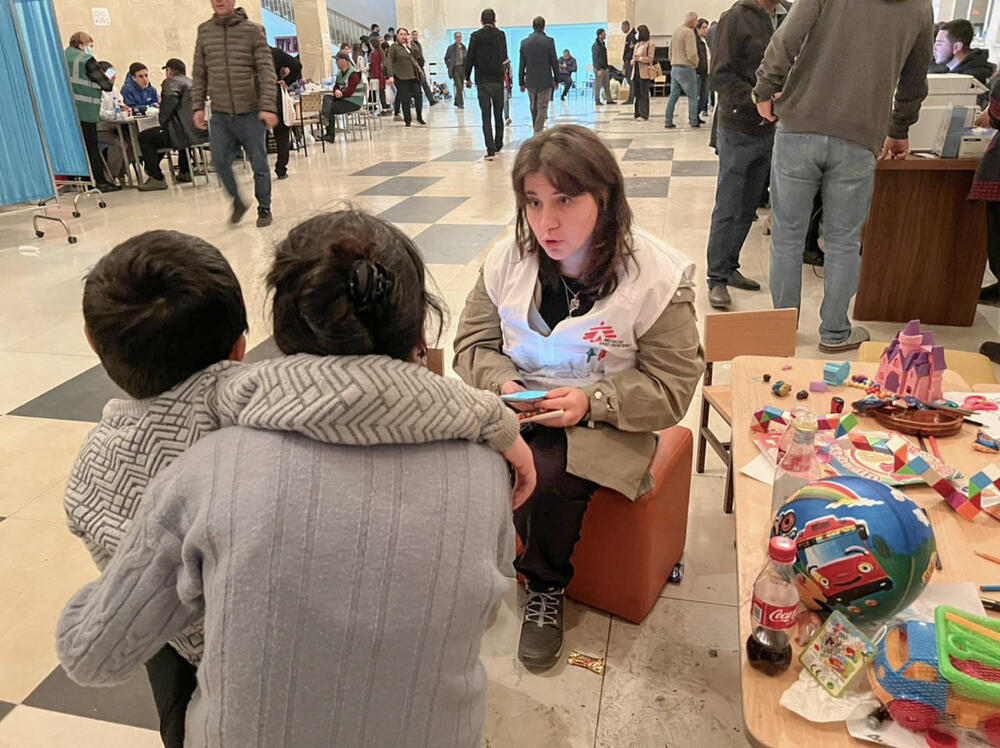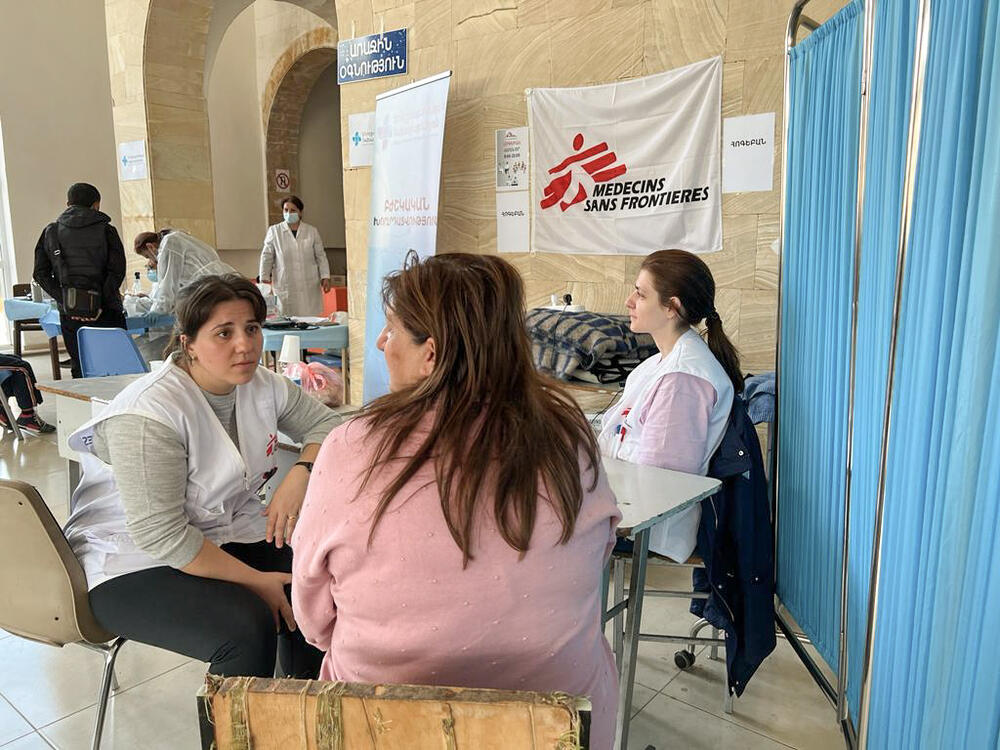Nagorno-Karabakh: MSF provides mental health care to displaced people in Armenia
On Tuesday 19 September, Azerbaijan launched an attack on various areas in Nagorno-Karabakh. This is a region internationally recognised as Azerbaijan, but which has traditionally been home to many ethnic Armenians.
After a ceasefire agreement was reached 24 hours later, more than 100,000 residents from the region made their way to neighbouring Armenia through the Lachin corridor – a route between the region and the Armenian border which has been closed for 10 months.
The displaced people have an urgent need for mental health support, alongside other social and medical requirements.
“Almost everyone we talk to tells us they have lost a loved one or a distant family member. Most of them are devastated and severely psychologically affected.”
On Thursday 28 September, a medical team from Médecins Sans Frontières / Doctors Without Borders (MSF) began receiving patients at the registration centre in Goris, southern Armenia.
There, two psychologists have provided mental health consultations and psychological first aid to over 200 people in just a few days.
“We are dealing with people who have lost everything,” says Narine Danielyan, MSF’s medical team leader in Goris.
“Our approach involves several steps, including building trust, ensuring wellbeing, stabilising those in acute distress, providing practical assistance, rebuilding social connections, offering coping strategies, and connecting them to additional resources and care.”
The people MSF meets are often exhausted from carrying multiple bags; they are often looking for specific support or just someone to listen to their stories and concerns.
Most suffer from mental health issues, and MSF medical staff have observed stress, uncertainty about the future, shock, denial, fear, anger, grief, sleep disturbances and physical symptoms such as stomach aches and headaches among the patients they see. But this is just the tip of the iceberg in terms of the long-term suffering that people can endure.
“A woman came to us, repeatedly expressing her desire to return home immediately and asking for our help,” says Narine Danielyan.
“Almost everyone we talk to tells us they have lost a loved one or a distant family member. Most of them are devastated and severely psychologically affected.”
MSF's mental health teams continue to follow up with patients who have been accommodated in some of the hotels or centres near the reception point in Goris by providing mental health sessions.
Meanwhile, our teams remain actively engaged in assessing the evolving humanitarian needs, with a specific focus on general healthcare, continuity of care for patients with non-communicable diseases, and addressing respiratory infections, among other illnesses.
MSF and mental health
The psychological impact of a humanitarian emergency can be severe.
Our teams provide emergency medical aid in catastrophes all over the world — armed conflicts, natural disasters, famines and epidemics. However, for people who have lived through these traumatic events, survival goes beyond ensuring physical wellbeing.
Worldwide, around one in four people will suffer from a mental health problem during their lifetime, yet roughly 60 percent will not seek help.

